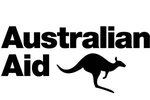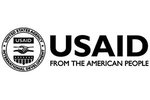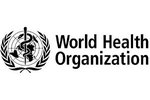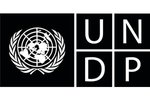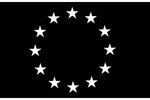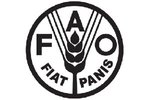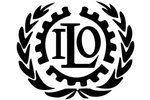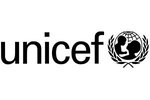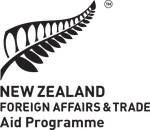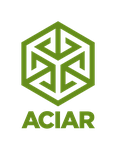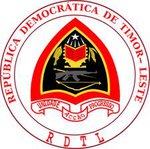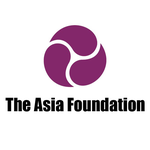The future of education in the Pacific, as told by teachers
For World Teacher's Day, we interviewed four of the Science Fellows advising us on the MFAT-funded Pacific eLearning Program. They share their perspectives on education and teaching in four countries across the Pacific.
Leota Fitimaula Donna Leaniva - Science Fellow, Samoa
Donna is a science teacher and the Principal of Le Amosa O Savavau Preparatory School in Samoa. She has a background in Samoan culture and philosophy and is a former TV host and current radio host. She is also interested in things such as kayaking, guitar, painting, beekeeping, flower arrangements, and weaving.
What makes a great teacher?
I think that a great teacher is one who can understand and communicate with his or her students. One who also knows that each child has a different learning aptitude and ability and pace of comprehension. It is so important to remember that you can make a world of difference in that young person's life with your affirmation and correction as well as support!
What are the most important things students learn in your science classroom?
The most important thing they learn is that it's okay when an experiment doesn't work the way it should! It just means that it needs fine tuning or a closer look at materials or the method again, or checking the control or maybe even - a short break haha. If at first you don't succeed...try, try again!
What does the future of education in the Pacific look like?
Education has always been "the reigns that hold back the wild horses of change" (quote from the late Aiono Dr. Fanaafi Le Tagaloa- Samoan Professor and Educator) - and it is THE HOPE for keeping our Pacific safe from the advancing influences which will certainly destroy environments and beautiful ways of life. With the right tools and support (like this Pacific eLearning Program venture), our teachers and young people can reinforce and expand their knowledge and learn about the world from the safety of their own homes. They can also communicate with others all over the world with ease and less expense. The future looks bright if Pacific students are taught and guided in the right way!
How can development partners make sure their programs help teachers in the Pacific?
Development partners need to tap into and communicate with the local learning environments and educators in the Pacific. This is a very effective way of knowing exactly where the help is required for the teachers - not only in terms of knowledge and upgrading topics, but also in terms of equipment readily available for designing experiments and activities that the local teachers can then implement.
By empowering educators at the grassroots level through discussions, assistance, and instruction, development partners can make a difference in a whole generation of science students - and then, in a nation!
(This project - the Pacific eLearning Program - has been on target in the areas mentioned above - and it is really appreciated!)
Johnknox Tolish - Science fellow, Vanuatu
John is a science and biology teacher, and the Head of Science at Malapoa College in Vanuatu. He is also a lover of music, gardening, and sports, and hopes to one day complete a PhD in science education.
What makes a great teacher?
A teacher is a model and driver of change that uses any platform of learning to help shape the lives of others. People have their own perspective about a great teacher. Depending on the context of which a teacher exists there are certain values, virtues, and standards that make an individual become a great teacher. From my stance, to be a great teacher requires an individual to go through a lot of self-change and evaluation to reach a level that has an effect on the lives of the students and leaves a legacy of being a teacher in the heart, mind and wellbeing of their students. Some qualities that could help a teacher to be a great teacher are:
- Having good communication skills
- Listening to the students to know their best abilities and interest
- Having a friendly and approachable attitude to the students
- Being patient with the students and setting a model to the students to help them excel
- Having good organisational skills, commitment to what they are doing, and helping to be innovative in knowledge delivery
- Setting goals and scaffolding students to achieve their goals by providing guidance for students to use their abilities to be great thinkers and develop in all aspects of learning
What are the most important things students learn in your science classroom?
In my science classrooms, things that my students learn apart from learning the content of the topics in the syllabus include participatory learning - that is, they learn to work with others, sharing ideas about an experiment, or doing a group work presentation. They also learn to analyse data and meet deadlines for assignments. Students are also given the chance to create their own thinking sphere where they have opportunities to design investigations and lead on activities to test hypotheses and make valuable conclusions about concepts and theories.
What does the future of education in the Pacific look like?
In my own view, the future of education in the Pacific will shift towards using more ICT tools in classrooms. This will include more use of the internet as well as smartphones, computers, and other paperless learning platforms. This is important for learning to be ongoing and also address other social issues that can affect the learning and schooling processes. For example, during this pandemic, schools in Vanuatu have being putting a lot of emphasis on using eLearning platforms for students and teachers. This has become an issue because the schools are encouraging students to use smartphones to access lessons, tests, assignments, virtual labs, and quizzes.
On the one hand, parents are uncertain about the safety and the changes the kids may develop when having access to such platforms. Furthermore, they are concerned about the issue of access to the internet, and of the effects that the use of mobile phones can have on their kids. The way I see it, we cannot escape the directional shift into using ICT tools to make learning more efficient. School policies must be developed to create the positivity and certainty around the changes in education that will be seen in the future, especially for our Pacific youngsters.
How can development partners make sure their programs help teachers in the Pacific?
Here are few ways that development partners can make sure their programs will help the teachers in the Pacific:
- Have good consultations and learn more about the issues affecting the teachers in the Pacific.
- Know that teachers in the Pacific must take part in the collaboration and decision making of what must be done when a program is to be rolled out.
- Know that teachers must also help to decide the most important areas that these partners can assist in. Teachers know more about their teaching context, so it would be better that they are part of decision making when development partners are implementing programs. This is because teachers in the Pacific will be the users of the program. On the same tone, teacher trainings on mastering, consistency, monitoring and evaluation of the programs is also paramount for the development partners to consider before implementing or carrying out their programs.
Philip Tohupao - Science Fellow, Solomon Islands
Philip is a biology tutor with a background in lab tech in a gold mine, in pathology, and in firefighting. Outside of his job he likes to play soccer, volleyball, and basketball.
What makes a great teacher?
Great teachers are masters of their subject matter, and they instil the love for learning, inspire hope, and ignite the imagination of their students. They set high expectations for all students, while also knowing that all students have different learning abilities. They also communicate frequently with parents.
What are the most important things students learn in your science classroom?
The most important things student learn in my class are scientific methods, critical thinking, methods of enquiry, and learning how to make decisions based on available data or evidence.
What does the future of education in the Pacific look like?
The future of education in the Pacific depends very much on the policy makers in each country, which means our leaders. The stakeholders of education in each Pacific Island country must continue to identify the educational needs of their own country and address them with changing times. If we fail to address our educational needs, we will see ourselves entangled in the cycle of poverty. It is also very important that as a region, we continue to collaborate and educate ourselves on common issues that affect our education systems. It is also very important that we learn from each other.
How can development partners make sure their programs help teachers in the Pacific?
They may assist teachers by giving them opportunities to be part of a teaching team that visits successful schools abroad to learn from those schools. They could also provide funds to meet the cost for experts from universities to come to schools to meet teachers and inspire them to keep working, or even improve their teaching approaches. Development partners may also support teachers programs such as teacher training workshops as a way of learning and encouraging each other to continue to improve on work performance.
Cindy Milanovic - Science Fellow, Cook Islands
Cindy is a former science teacher who is also currently a Careers Advisor at the Ministry of Education.
What makes a great teacher?
Good teachers know their subject matter and students well. They have high expectations of their students and use this to motivate them to plan interesting and active lessons that encourage students to become interested in the world around them. Good teachers are prepared!
What are the most important things students learn in your science classroom?
The most important things students learn in my science class is the relevance of science to everyday life, to be inquisitive about the world around them, and how cool it is to know science stuff.
What does the future of education in the Pacific look like?
The future of education in the Pacific will be students learning about their own environment, using local contexts, and finding out how to solve local issues. Learning programs will incorporate local experts more with students able to see how traditional knowledge can have a scientific base and is still relevant and valuable today.
How can development partners make sure their programs help teachers in the Pacific?
Development partners can make sure their programs help teachers in the Pacific by holding regular communication with students, teachers, schools, and community members to learn about the context, resources and aims of individuals, local villages, and nations. They can ensure their programs maintain high expectations. It is also important to provide continued support and communication to teachers throughout the program.
